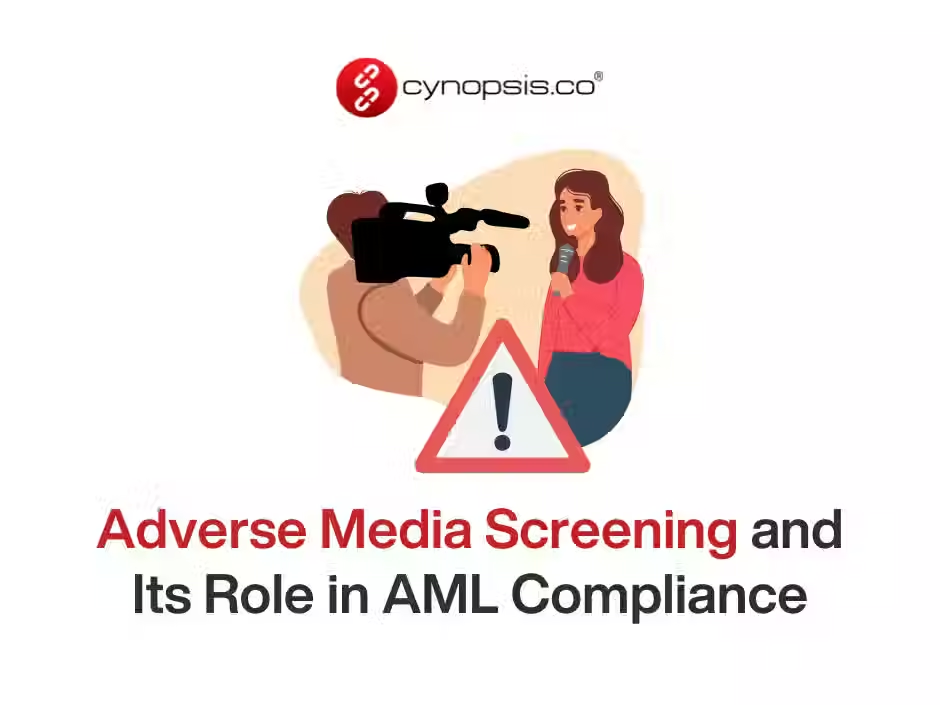Wrapping Up Another Insightful Discussion On Digital Identity, eKYC and Its Implications
- Cynopsis Solutions

- Jun 16, 2021
- 3 min read
Updated: Jun 12, 2025

We have successfully wrapped up another exciting joint webinar on the issue of e-KYC and EDD on 16 June. In the online webinar, Chye Kit alongside with other panelists addressed the definition and practice on digital identity as well as the potential risks within. The discussion started off with a fundamental question when it came to e-KYC, which Chye Kit left a good answer to.
What does it mean when talking about digital identity?
Digital identity refers to a digital representation of attributes of who you claim you are. Last year, the Financial Action Task Force (FATF) published a guidance paper on digital identity, defining digital ID as the use of technology to assert and prove identities, which to an extent, gives a new shape to onboarding with the revolutionary process. Chye Kit also took this opportunity to clarify the underlying confusion of whether a scan copy of a passport can be referred to as a form of digital ID. From his point of view, the definition of “digital” is rather broad, and what needs to be digitized is actually the attributes of a picture, rather than the image itself. The crucial part is to extract the undermining features and turn them into something that subsequently facilitates a more efficient process of e-KYC.
What is the objective of digital ID?
A digital ID provider is a centralized and trusted platform and forum where Financial Institutions (FIs) can leverage on in getting national identification information to perform KYC measures. The purpose of digital ID is to ease the pain points of manual processes, and from a customer’s point of view, e-KYC saves their time and hassle of manually submitting paper documents. Additionally, for compliance officers or relationship managers, e-KYC cuts down one or more items among that whole list of documents that they need to get from clients during the account opening or periodic review process, which consequently makes the process much faster. Especially during this covid-19 pandemic, account opening continues to take place in a digitized manner, creating a win-win situation for both sides.
Reliability of Data – Government (MyInfo) versus Private Sector
With the introduction of MyInfo, private sectors are now able to use this database maintained by the government to onboard customers online under a non-face-to-face basis. However there is a difference depending on each country's model of digital identification. For some models, there are public private partnerships where the information is held by individuals but shared by trusted partners that are private sectors such as banks. Customers potentially give permission to FIs you have an account with to allow them to share your information.
What implication does ID have on Enhanced Due Diligence (EDD)
Fiona, one of the panelists in the session, first gave a distinct clarification to people’s misconception, explaining that identification and verification are only the very first steps to conduct EDD. The subsequent step requires compliance officers to drill down to their clients’ source of wealth and funds, transaction patterns, or even the different layers involved in the shareholding if it is conducted on a corporate client.
How is data protection going to be impacted by digital ID?
The panelists agreed that data privacy has always been an internal challenge within all technology companies. At the end of the session, Chye Kit shared his thoughts from a vendor’s perspective, highlighting the importance of making distinction between data processors and controllers. You have the responsibility to find out where your service providers send your customer’s data to be processed. Last but not least, despite the fact that there are always conflicts between data privacy and information transparency in KYC/AML processes, it is recommended for companies to collect and retain their customers’ information even five years after the account closure or beyond in order to meet the regulatory requirements.
About Cynopsis Solutions
Founded in 2014 and headquartered in Singapore, Cynopsis Solutions offers RegTech solutions designed to digitise and automate Compliance and regulatory processes, in particular know-your-customer, anti-money laundering, and counter-terrorism financing. Cynopsis Solutions’ accolades include MAS FinTech Awards (2018), RegTech100 (2018, 2019) and Financial Times Top 50 High Growth Companies in Asia-Pacific.
Our end-to-end KYC/AML solutions are designed according to the global FATF recommendations, applicable to more than 180 jurisdictions and is already helping more than a thousand B2B customers in the Banking, Financial Services, FinTech and Cryptocurrency, Professional Services and Gaming sectors globally.
Cynopsis.co | Twitter | LinkedIn | Facebook | Instagram


